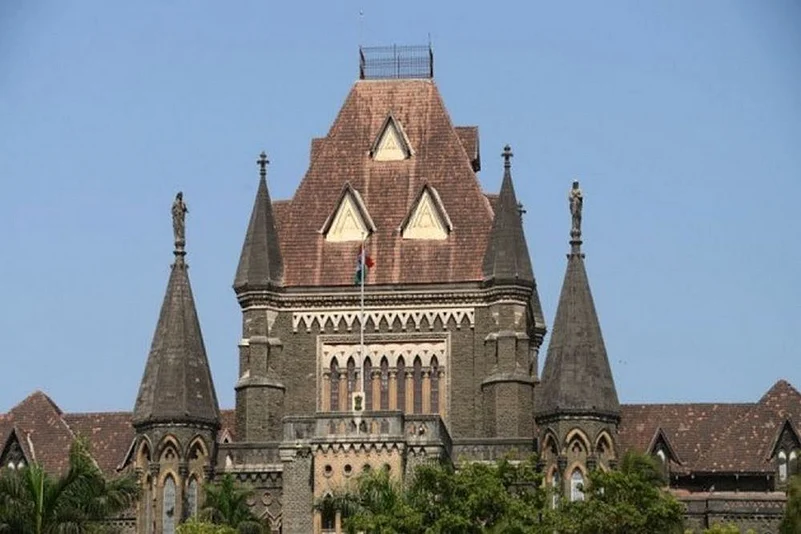The confusion, it seems, was over Roy and Tolstoy. The Bombay High Court on Thursday said it knew that Leo Tolstoy's 'War and Peace' was a literary classic and that it didn't mean to suggest that all the books seized by police in the Elgar Parishad-Koregaon Bhima case were incriminating.
The clarification by Justice Sarang Kotwal came a day after he asked accused Vernon Gonsalves to explain why he kept "objectionable material" like a copy of "War and Peace" at his home.
The counsel for a co-accused told the court that the 'War and Peace' that the court had referred to on Wednesday was a collection of essays edited by Biswajit Roy, titled War and Peace in Junglemahal: People, State and Maoists.
That book (according to its publishers), is a "collection of essays by well-known activists and academics including mediators and examines the failed peace initiatives in the context of the governments' elitist developmental policies, doublespeak of parliamentary parties and Maoists' follies."
The judge's purported remarks had stirred up thousands of reactions on Twitter. The hashtag #WarAndPeace was trending on the social media platform during the day.
The court's comments on Thursday came after the counsel for Gonsalves informed it that none of the books seized from the activist's residence last year were banned by the government in accordance with CrPC provisions.
Justice Kotwal said, "I knew that Tolstoy's War and Peace was a literary classic. I was reading the whole list from the panchnama attached to the chargesheet. It was written in such poor handwriting. I know War and Peace. And there, I was making a query (on why Gonsalves had copies of these books) but did not want to suggest that everything was
incriminating."
The counsel for co-accused Sudha Bahrdwaj, Yug Chaudhary, said that on Wednesday, the court was referring to the book by Roy (and not the one by Tolstoy).
The judge then said, "There were so many references to war and other titles. Before I went to 'War and Peace', I made a reference to Rajya Daman (another book) too. Can a judge not ask any questions in court?"
Gonsalves told the court that he owned 2,000 books and none of these books, including the ones seized from his home by the Pune police, were banned.
Gonsalves' counsel Mihir Desai informed the court that police were in possession of these allegedly incriminating books for a year now but had done nothing about it.
"These books that the police call incriminating are not banned under section 95 of the Criminal Procedure Code. In fact, they are all available on (online retailer) Amazon. It
is possible that the government did not know about these books until they seized them from me (Gonsalves)," Desai said.
"So, having these books will not show that I am in anyway associated with any banned organisation," he said.
The court said Desai had "made his point" on the seizure of these books and CDs by arguing that they were not banned material.
The arguments are likely to continue on Friday.
On Wednesday, the court had asked Gonsalves, "War and Peace is about war in another country. Why were you keeping these books at your house."
The judge had also referred to a CD titled "Rajya Dhaman Virodhi" and said the title "clearly suggested" it is material against the state. "Why were you keeping this in your
house," he had asked Gonsalves.
Tolstoy's classic novel about Russia during Napoleonic wars became a point of contention during Wednesday's hearing after the Pune Police probing the case claimed that the book was part of the "highly incriminating evidence" it had seized room Gonsalves' house in Mumbai during raids conducted last year.
Police had also read out the titles of several other books and CDs allegedly recovered from Gonsalves' house which included CDs titled 'Rajya Daman Virodhi' released by Kabir Kala Manch, 'Marxist Archives' and 'Jai Bhima Comrade'; books 'War and Peace', 'Understanding Maoists' and 'RCP Review', and copies of a circular issued by the National Study Circle.
"The title of the CD 'Rajya Daman Virodhi' itself suggests it has something against the State while 'War and Peace' is about a war in another country. Why did you (Gonsalves) keep objectionable material such as books like 'War and Peace', books and CDs at home? You will have to explain this to the court," Justice Kotwal had said.
Gonsalves was arrested by the Pune police under the Unlawful Activities (Prevention) Act after raids at residences and offices of several activists in connection with the Elgar Parishad case.
The police had claimed provocative speeches made at the Parishad on December 31, 2017 were responsible for the caste violence around Koregaon Bhima village in Pune district the next day during an event to commemorate the 200th anniversary of the Battle of Koregaon Bhima.
Dalits celebrate the anniversary of the Koregaon Bhima battle every year as they believe that the Army of the British comprising 'Mahars' or scheduled caste soldiers had defeated
the forces of the Brahmin Peshwas.
















